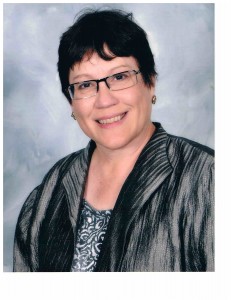I am Thea Dunmire.
I am the author of the posts on this website and the instructor of the Ethics for the EHS Professional course.
This course is the outgrowth of many years of involvement in developing, interpreting and teaching about professional codes of ethics.
In 1992 to 1994, I was a member of the IH Code of Ethics Task Force and provided input in developing the “Code of Ethics for the Practice of Industrial Hygiene” for the American Academy of Industrial Hygiene. At that time, I was an attorney and I got involved with the task force based on the interest in ethical obligations I developed when I was required to pass an “ethics exam” in order to pass the bar so I could practice as an attorney.
In reviewing my correspondence and notes from the 1990’s, I realized that many of the ethical issues we were concerned about then are still important today. One of the documents I found was a letter I put together in 1992 listing what I thought were the major issues with the code of ethics being proposed.
These included –
What is the scope of practice to which the Code of Ethics applies?
Now, as then, industrial hygienists often do more than just industrial hygiene. They manage integrated safety and environmental programs. They advise on product stewardship. They develop employee wellness programs. In other words, they wear multiple hats. These different hats may come with differing – and sometimes potentially conflicting – ethical obligations.
To which stakeholders do health and safety professionals own their primary duty?
The question then, as now, is whether the primary responsibility is owed to their clients or employers, to workers or to the public at large. There is no problem if the interests of all stakeholders are aligned. There is potentially a major problem when they are not.
What are the obligations for disclosure of confidential information in “endangerment” situations?
Do health and safety professionals have a right, and perhaps even a duty, to disclose information a client or employer wants kept confidential? Under what circumstances is disclosure appropriate?
It is interesting to me that these same issues are still important and challenging today!
When the American Board of Industrial Hygiene (ABIH) added an ethics requirement to their certification program in 2009, the Florida Local Section of AIHA asked me to put together an ethics training class. I taught the first class for them in 2009 and have been teaching ethics classes ever since.
This web-based class is an outgrowth of those in-person ethics classes. The challenge in developing this class has been to retain the case study aspect of the class in a virtual classroom. The case study “discussion” that students found useful in the in-person classes is accomplished virtually in this class through the completion of survey questions and posted commentary.
Click on the link to find out more about the Ethics for the EHS Professional Course.
I look forward to seeing you in the virtual classroom and I hope you enjoy the course.
Thea Dunmire
p.s. For history buffs, click here if you are interested in taking a look at the case study I developed and helped present at the AAIH Conference in Fort Lauderdale, FL in October of 1994. The issues raised in this 1994 case study are still relevant today. I have used this case study to develop one of the case studies that is included in this course.

